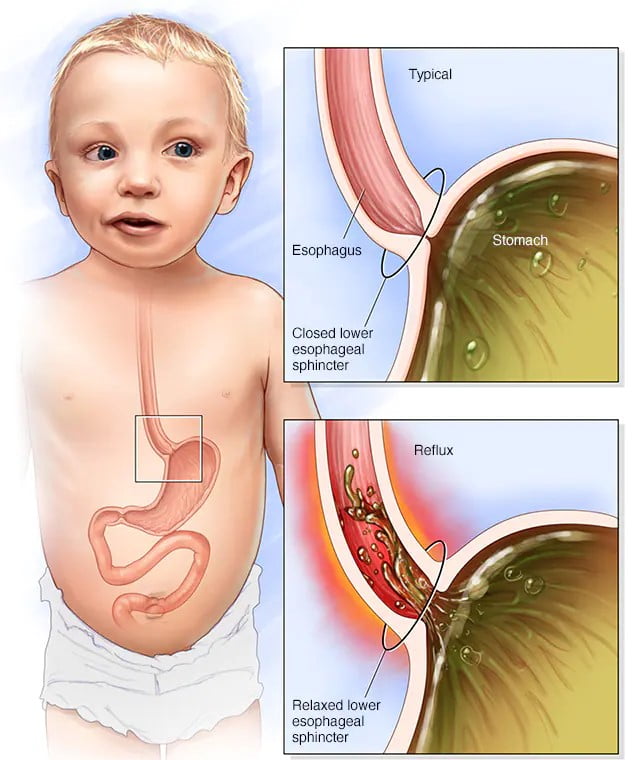Understanding Infant Reflux
Introduction Infant reflux occurs when a baby regurgitates liquid or food, leading to stomach contents rising back into the esophagus—the tube connecting the mouth and stomach.
Frequency and Concerns This reflux is common among healthy infants several times daily. Provided the infant is thriving and content, it’s typically not worrisome. Often referred to as gastroesophageal reflux (GER), this condition diminishes as the child ages, rarely persisting beyond 18 months.
Severe Cases Occasionally, infant reflux may result in poor weight gain or delayed growth compared to peers, potentially signaling underlying health issues such as allergies, digestive blockages, or gastroesophageal reflux disease (GERD)—a more intense version of GER with significant health implications.
Symptoms Overview Generally, infant reflux doesn’t pose serious concerns, as the regurgitated stomach contents are not acidic enough to harm the throat or esophagus.
Medical Consultation Indicators Consult a pediatrician if your infant:
- Exhibits poor weight gain.
- Engages in forceful, projectile vomiting.
- Regurgitates green or yellow fluid, or material resembling coffee grounds.
- Shows aversion to feeding.
- Has bloody stools.
- Struggles with persistent coughing or breathing difficulties.
- Starts spitting up beyond 6 months of age.
- Appears excessively irritable post-feeding.
- Lacks energy.
These symptoms could point to treatable yet serious conditions like GERD or digestive obstructions.
Underlying Causes The lower esophageal sphincter (LES)—the muscle between the esophagus and stomach—remains underdeveloped in infants, allowing reflux. With time, the LES matures, preventing such backflow.
Common Contributing Factors Infant reflux can stem from unavoidable factors like a predominantly liquid diet and frequent horizontal positioning.
Serious Conditions In certain cases, infant reflux is due to more grave conditions, such as:
- GERD, where the reflux contains sufficient acid to damage the esophageal lining.
- Pyloric stenosis, where a thickened muscular valve hinders food from progressing to the small intestine.
- Cow’s milk protein intolerance.
- Eosinophilic esophagitis, where eosinophils (a type of white blood cell) accumulate and harm the esophagus.
- Sandifer syndrome, a rare GERD outcome causing abnormal head movements.
Risk Enhancers Factors increasing the likelihood of infant reflux include:
- Premature birth.
- Pulmonary conditions like cystic fibrosis.
- Neurological disorders such as cerebral palsy.
- Past esophageal surgeries.
Potential Complications While infant reflux typically resolves without issues, severe conditions like GERD can impede a child’s growth. Research suggests that infants with recurrent reflux episodes may have a higher chance of developing GERD in later childhood.


